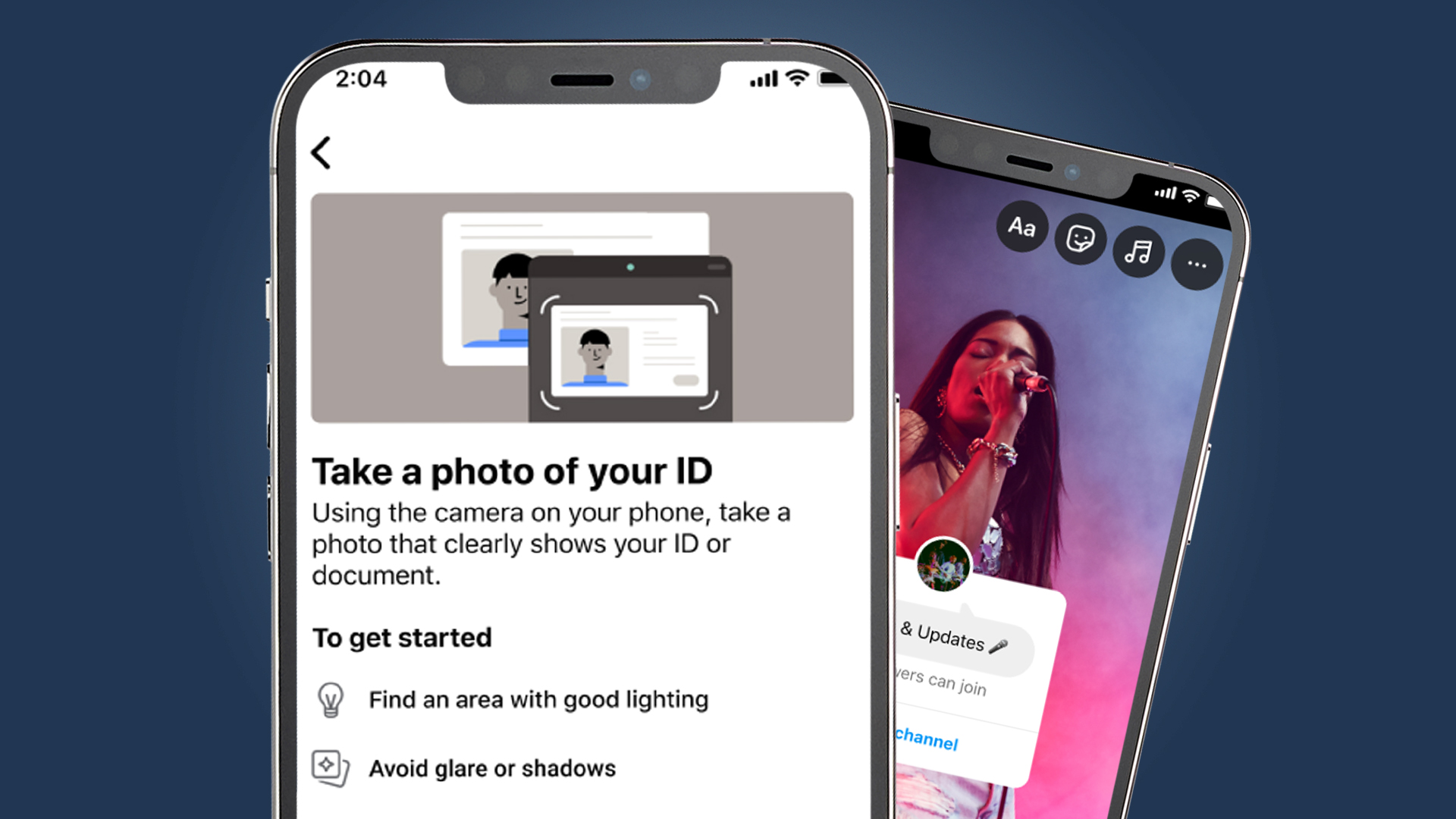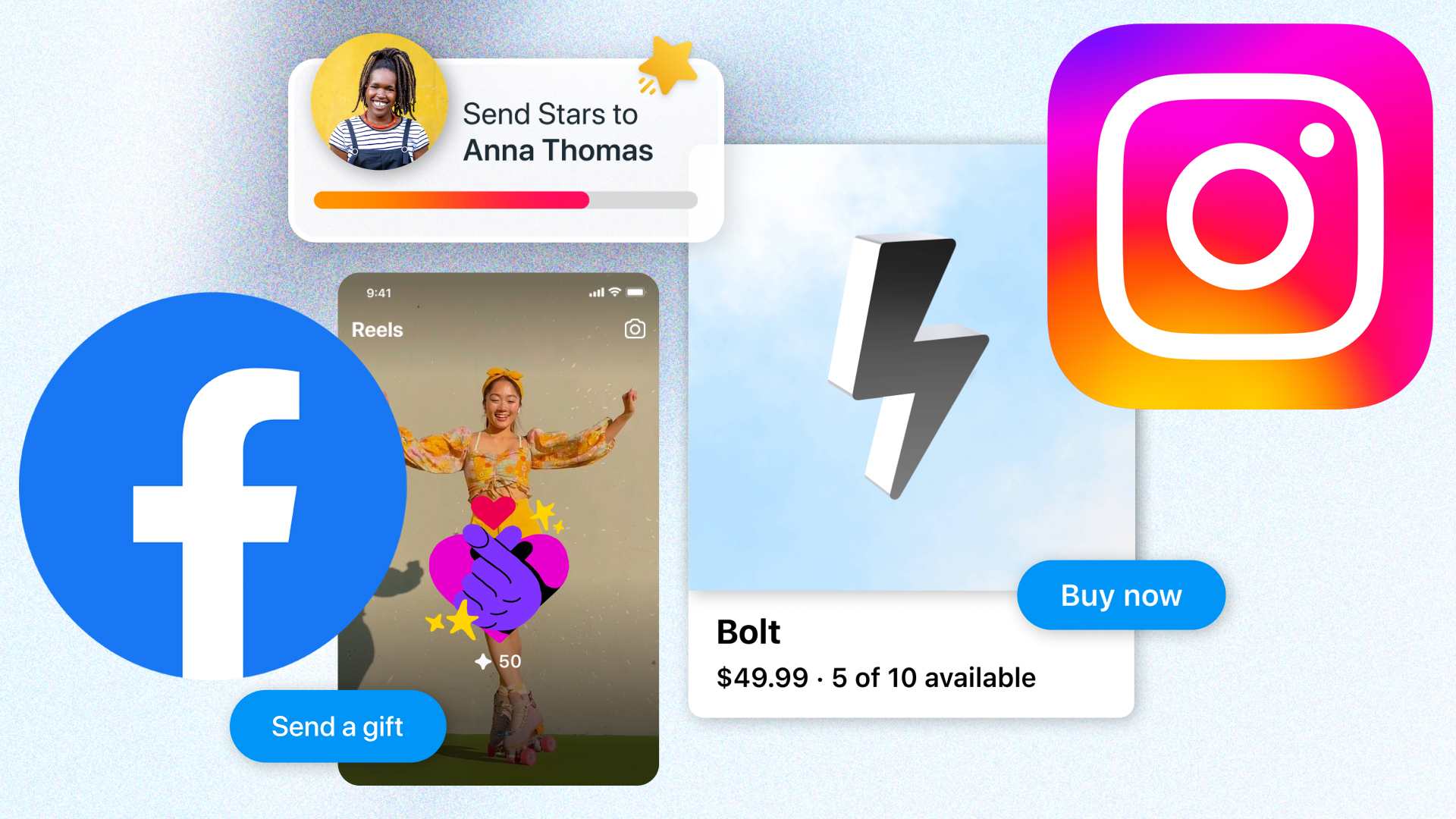Facebook and Instagram want you to start paying for social media success
Meta Verified could change the social media game

Meta is testing monthly subscription services for Facebook and Instagram that will give users blue tick verification, in a controversial move that echoes Twitter Blue.
The new Meta Verified subscription will be available in Australia and New Zealand later this week, with Meta stating that it hopes to bring the service "to the rest of the world soon".
The monthly subscription, which will cost $11.99 / AU$19.99 (around £10) on the web and $14.99 / AU$24.99 (around £13) on iOS and Android, comes with features that are mainly aimed at creators who want to fast-track their way to success on Facebook and Instagram.
Meta says there are five main benefits to having a Meta Verified subscription. Firstly, you'll get a verified badge, which will require you to send a government-issued ID like a passport to Meta for authentication.
– Meta is testing a monthly subscription service for Facebook and Instagram called 'Meta Verified'
– It's being tested in Australia and New Zealand later this week, before coming to the rest of the world soon
– The main benefits are a verified badge, proactive account monitoring, better support and increased visibility
– The web version costs $11.99 / AU$19.99 (around £10)
– On iOS/Android it costs $14.99 / AU$24.99 (around £13)
– Businesses can't apply for 'Meta Verified' right now
You'll also get what Meta calls 'proactive account monitoring' to ward off impersonators in cases of identity theft, along with security help from "a real person". But the most tempting, and controversial, aspect of Meta Verified is the promise of "increased visibility and reach with prominence in some areas of the platform", including in search, comments and recommendations.
For anyone who uses Facebook and Instagram to promote their personal brand, it sounds like the new subscription could almost become a prerequisite for success on the platforms. But we'll have to see how exactly how powerful this increased visibility proves to be in reality. Meta says that "subscribers will a smaller following may see a more noticeable impact to their reach", due to their smaller audiences.
It's already possible to get a verified account on Facebook and Instagram, which is something many users have worked hard to obtain. Fortunately, Meta has promised that "there will be no changes to accounts on Instagram and Facebook that are already verified" based on its previous requirements.
Get daily insight, inspiration and deals in your inbox
Sign up for breaking news, reviews, opinion, top tech deals, and more.
But there will changes in the long term, with Meta stating that it wants to build a subscription service for everyone, including businesses and "our community at large". In other words, while businesses can't yet apply for a Meta Verified badge, expect that to follow – along with a wider campaign to get Facebook and Instagram users to sign up for a pricey monthly subscription.
Analysis: social media is changing fast

Like Twitter, Meta has been forced into launching a monthly subscription for Facebook and Instagram due to some harsh economic realities – namely, falling advertising revenue, and the knock-on effects of Apple's pesky 'ask app not to track' privacy feature.
Meta Verified is clearly aimed at creators who might be happy to trade some of the financial gain they make from promotion on Facebook and Instagram for a monthly fee. Yet even for that audience, the fee seems high. At $11.99 a month for the web-only version, it's the same as YouTube Premium – which promises an ad-free experience and more.
Instead, the main aim of Meta Verified appears to be to allow creators to buy some "increased visibility", which Meta admits may vary depending on their "existing audience and the topic of their posts". Like Twitter, the result could be a tiered social media landscape, where subscribers pay their way to the top of our feeds.
A rollout for business accounts seems inevitable, and this is where Facebook – which still has the largest number of active users of any social media site – could really tap into a valuable, if likely controversial, new revenue stream.
What isn't yet clear is exactly how much people are, in a tough financial climate, prepared to pay for social media services that have historically been free, albeit supported by advertising and sharing user data. This is something Meta will test with its Meta Verified trials in Australia and New Zealand, before a global rollout that the tech giant says is coming "soon".
- Make sure your accounts are secured with 2FA, and consider using the best authenticator apps for optimal protection

Mark is TechRadar's Senior news editor. Having worked in tech journalism for a ludicrous 17 years, Mark is now attempting to break the world record for the number of camera bags hoarded by one person. He was previously Cameras Editor at both TechRadar and Trusted Reviews, Acting editor on Stuff.tv, as well as Features editor and Reviews editor on Stuff magazine. As a freelancer, he's contributed to titles including The Sunday Times, FourFourTwo and Arena. And in a former life, he also won The Daily Telegraph's Young Sportswriter of the Year. But that was before he discovered the strange joys of getting up at 4am for a photo shoot in London's Square Mile.